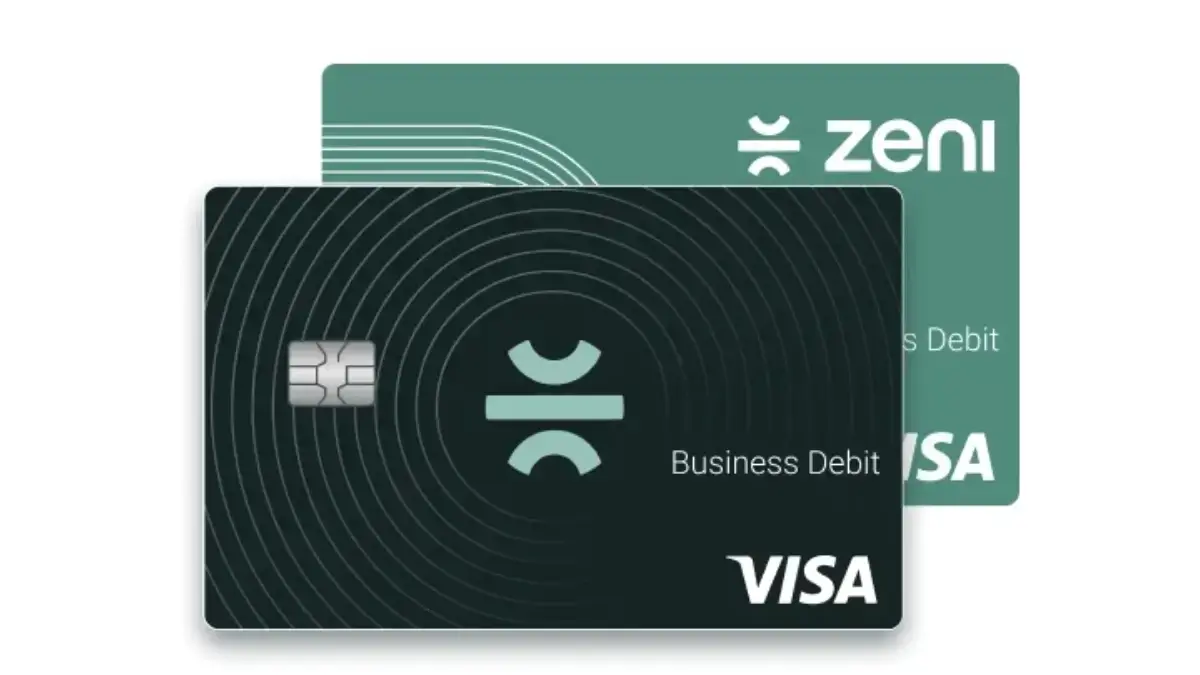
Kudos has partnered with CardRatings and Red Ventures for our coverage of credit card products. Kudos, CardRatings, and Red Ventures may receive a commission from card issuers. Kudos may receive commission from card issuers. Some of the card offers that appear on Kudos are from advertisers and may impact how and where card products appear on the site. Kudos tries to include as many card companies and offers as we are aware of, including offers from issuers that don't pay us, but we may not cover all card companies or all available card offers. You don't have to use our links, but we're grateful when you do!
What Affects My Car Insurance Quotes – Find Out Why Your Rate Is High
July 1, 2025


Wondering why your car insurance quote seems high? It turns out car insurance isn’t one-size-fits-all – your quote is determined by a variety of personal, vehicle, and policy factors. Insurers assess how much risk you pose as a driver, and they set your premium accordingly.
Some factors (like your age) are out of your control, while others (like your coverage choices) you can adjust. Below, we break down the main factors that affect your car insurance quotes and share tips to help you save on coverage.
Factors That Affect Your Car Insurance Quote
When you request an auto insurance quote, companies evaluate several key factors to decide your rate. Essentially, anything that increases the chance you’ll file a claim (or the potential cost of a claim) can raise your premium. Here are the top factors that influence how much you pay for car insurance:
Location
Where you live has a major impact on car insurance rates. Insurers look at your state, city, and even ZIP code. High-traffic urban areas tend to have more accidents, thefts, and claims, so city drivers often pay more than those in rural areas. Local weather and crime rates matter too – for example, hail-prone regions or places with high auto theft will see higher premiums. Even a move from one area to another can change your rate significantly (moving from a busy city to a quieter town might cut your premium by 10–40% on average).
Shopping for insurance? Kudos quickly compares top carriers and finds hidden perks – it’s free and easy to use. Instead of juggling multiple websites or agents, you can let Kudos do the work and uncover the best deal for your situation in minutes.
Age and Gender
Your age is one of the biggest rating factors. Teen and young adult drivers pay the highest premiums because they lack experience and have much higher accident rates. In fact, per mile driven, 16–19 year-olds have a fatal crash rate nearly 3 times higher than drivers aged 20+. As you get older and build experience, your rates typically go down – drivers in their 30s and 40s generally enjoy much lower prices than those under 25.
Gender can play a role as well: in many states, male drivers tend to pay slightly more than female drivers, since statistics show men are involved in more severe accidents (and claims) than women. (Some states have outlawed gender-based pricing, but in most of the U.S. it remains an accepted factor.)
Driving Record
Your driving history is one of the clearest indicators of risk. If you have a clean record – no recent tickets, accidents, or serious violations – insurers reward you with lower rates. But any blemishes on your record will push quotes higher. Even a minor speeding ticket can bump your premium up by around 20%.
More serious offenses have an even bigger effect: a DUI conviction, for example, can nearly double your insurance rate (average increase on the order of ~90%!). In short, safe driving really pays off over time, whereas frequent violations or at-fault accidents label you as a high-risk driver who will be charged more.
Claims History
Related to your driving record is your insurance claims history. Before giving you a quote, insurers check how many claims you’ve filed in recent years (typically within the last 3–5 years). If you have filed claims – even for incidents that weren’t your fault – you could face a higher premium.
Why? Statistics show that drivers who’ve made claims in the past are more likely to file new claims in the future. However, not all claims affect your rates equally. A single minor fender-bender claim might only raise your premium a little, whereas multiple claims or a large at-fault accident claim could have a substantial impact. Generally, the more claim-free years you have, the better your insurance quotes will be.
Credit Score
Believe it or not, your credit score can influence your car insurance quotes in most U.S. states. Insurers use a “credit-based insurance score” as a predictor of risk – and drivers with poor credit tend to file more claims on average. The result: if your credit score is low, you’ll likely be quoted a higher rate even if you have a clean driving record.
In fact, one analysis found that drivers with poor credit pay about twice as much for auto insurance as those with excellent credit, all else being equal. On average, good drivers with poor credit pay 115% more in premiums compared to similar drivers with excellent credit. The good news is a better credit score can lead to lower rates, so improving your credit may save you money on insurance.
(Note: A few states, including California, Hawaii, and Massachusetts, prohibit insurers from using credit information in auto insurance. But in the majority of states, your credit can significantly affect your quote.)
Vehicle Type
The car you drive is another big piece of the puzzle. Insurers consider your vehicle’s make, model, year, and other characteristics when setting your rate. Generally, newer and more expensive cars – or high-performance sports cars – cost more to insure than older, cheaper models. This is because luxury or sports cars can be costlier to repair or more tempting to thieves. Meanwhile, family sedans or cars with strong safety ratings might get a rate discount.
Factors like your car’s safety features, likelihood of theft, and average repair costs all influence your premium. For example, insuring a $90,000 sports car will far exceed the cost of insuring a $5,000 older compact car. Before you buy a vehicle, it’s wise to compare insurance quotes on that model – sometimes choosing a different trim or model can save you hundreds.
Coverage Choices and Deductible
The coverage options you select have a direct effect on your quote. Every state mandates a minimum amount of liability insurance, which is the cheapest level of coverage. If you opt for only the bare minimum liability, you’ll get the lowest legal premium – but you also get the least protection. Adding comprehensive and collision coverage (to form “full coverage” insurance) will raise your cost significantly.
For perspective, the average full coverage policy costs around $2,149 per year, versus about $631 per year for minimum liability coverage. In other words, full coverage can be 3–4 times more expensive than a basic policy because it covers a lot more. Higher coverage limits and extra endorsements (like roadside assistance or accident forgiveness) also increase your premium.
Your deductible – the amount you pay out-of-pocket on a claim – is another lever that affects price. You get to choose your deductible when buying a policy. A lower deductible (say $100 or $250) means the insurer will pay more in any claim, so they charge a higher premium. Conversely, selecting a higher deductible will lower your premium, since you’re agreeing to pay more if an accident happens. For example, raising your collision deductible from $200 to $500 could reduce that portion of your premium by 15–30%. Just be sure you could actually afford to pay the deductible amount if you need to file a claim.
5 Ways to Lower Your Car Insurance Costs
.avif)
While some factors (like your age) aren’t changeable, there are steps you can take to get a cheaper car insurance quote. Try these strategies to potentially save money on your premium:
- Ask about discounts: Most insurers offer a variety of discounts – for safe driving, good students, owning a home, having anti-theft devices, paying in full, and more.
- Bundle policies: If you have multiple insurance needs (like car + home or renters insurance), combine them with the same company. Bundling policies typically earns you a lower rate on each.
- Take a safe driving course: Completing an approved defensive driving or driver safety course can snag you a discount with many insurers.
- Raise your deductible: As mentioned above, choosing a higher deductible will lower your rate. If you can set aside an emergency fund for accidents, consider increasing your deductible to get a cheaper quote.
- Shop around and compare quotes: Car insurance rates vary widely between companies. Get quotes from at least 3 insurers when your policy is up for renewal (or if you feel your current rate is too high). Comparing options lets you find if another insurer offers the same coverage for less.
Frequently Asked Questions
Are car insurance quotes the same for everyone?
No, car insurance quotes are highly personalized. Insurers look at your unique profile – including your location, age, vehicle, driving history, and more – so rates can vary dramatically from person to person. Even for the exact same car and coverage, one driver’s quote can be hundreds of dollars more or less than another’s due to differences in risk factors.
Does my credit score affect my car insurance rate?
Yes, in most states your credit score can impact your car insurance premium. Drivers with poor credit tend to file more claims, so insurers charge them higher rates on average. In fact, a driver with poor credit might pay double the premium of someone with excellent credit. (A few states like California and Hawaii ban the use of credit in insurance, but the majority of states allow it.) Improving your credit score is a smart long-term way to potentially lower your insurance costs.
Will a traffic ticket or accident increase my insurance?
Yes, any traffic violation or at-fault accident can lead to a higher premium. Minor tickets (like speeding 5-10 mph over the limit) may raise your rate by a small amount, but serious violations have a big effect – for example, a DUI conviction can nearly double your insurance rate. At-fault accidents also typically result in a surcharge on your policy for 3–5 years. The cleaner your driving record, the less you’ll pay.
Does the type of car I drive influence my insurance quote?
Yes, your vehicle makes a difference. Insurers consider how expensive your car is to repair or replace, how safe it is, and how likely it is to be stolen. A luxury SUV or sports car will cost more to insure than an older economy car because it represents a bigger potential payout for the insurer. Cars with advanced safety features or lower theft rates can earn discounts, while high-horsepower or very costly vehicles usually come with higher premiums.
Do car insurance rates go down as drivers get older?
Yes, generally young drivers face the highest rates, and prices tend to decrease as you age into your 30s and 40s. Teen drivers and those under 25 see the most expensive premiums due to its high-risk nature. By age 25 or 30, if you’ve kept a clean driving record, you’ll likely pay substantially less than you did at 18. Keep in mind, however, that after a certain age (typically around 65–70), rates may start to creep up again as senior drivers can have higher risk factors.
Conclusion
.avif)
Car insurance quotes are far from random – they’re tailored to you, based on factors like your state, age, driving record, credit history, vehicle, and coverage choices. Knowing what affects your car insurance quotes gives you the power to control costs where you can. For example, maintaining a safe driving record and choosing a sensible vehicle will reward you with lower rates, and you can always shop around for a better deal.
The bottom line: if you think you’re overpaying for auto insurance, don’t settle. Use the tips above to snag discounts and compare offers. With a little effort (and the right tools), you can likely find cheaper coverage that still meets your needs – and Kudos can help you get there by simplifying the search for the best insurance perks and prices!

Supercharge Your Credit Cards
Experience smarter spending with Kudos and unlock more from your credit cards. Earn $20.00 when you sign up for Kudos with "GET20" and make an eligible Kudos Boost purchase.
Editorial Disclosure: Opinions expressed here are those of Kudos alone, not those of any bank, credit card issuer, hotel, airline, or other entity. This content has not been reviewed, approved or otherwise endorsed by any of the entities included within the post.





























.webp)
.webp)
.webp)
%20(1).webp)
.webp)
.webp)


.webp)